Nurses Narratives Staff Nurse Doris Brinsley
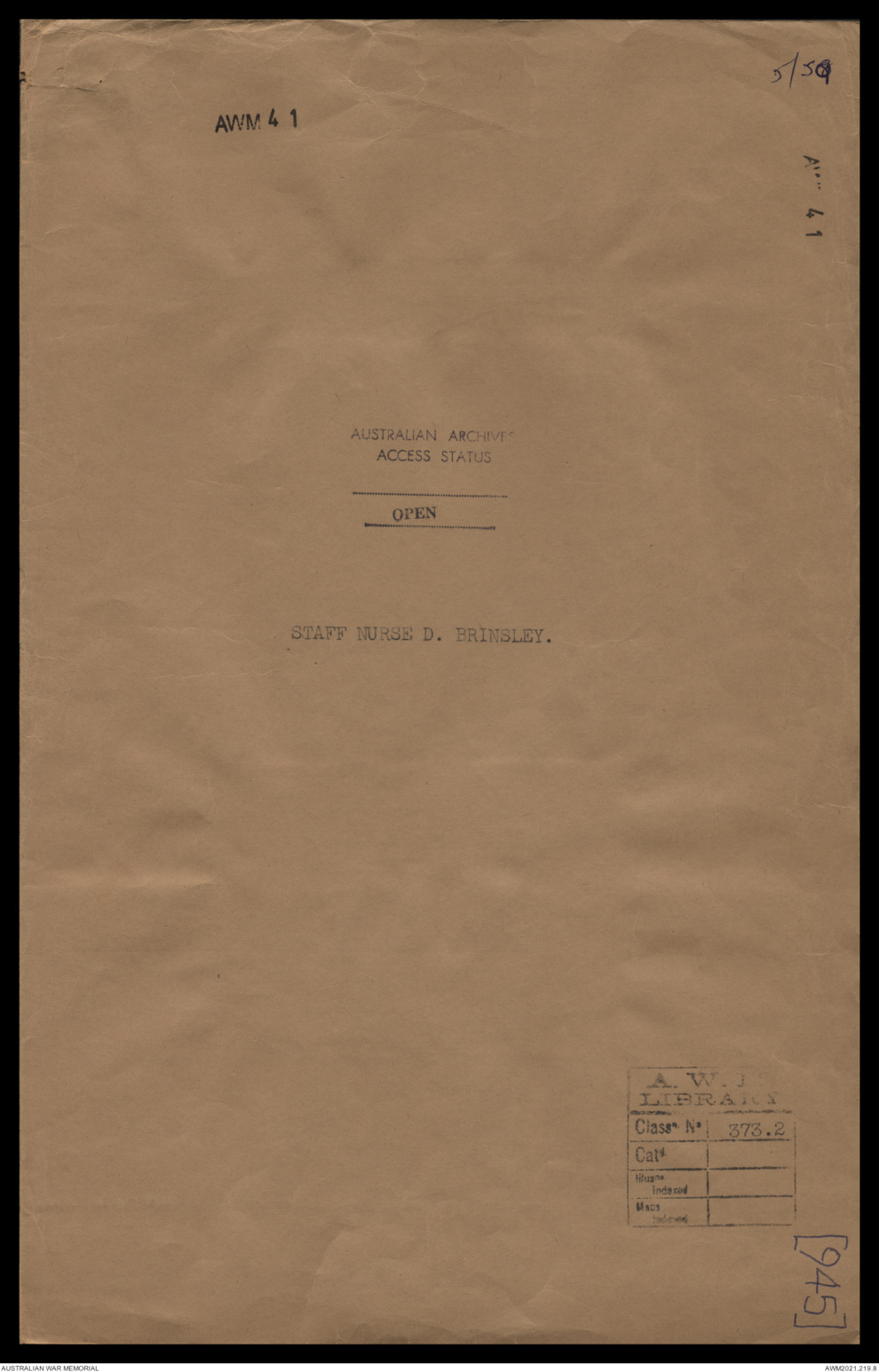
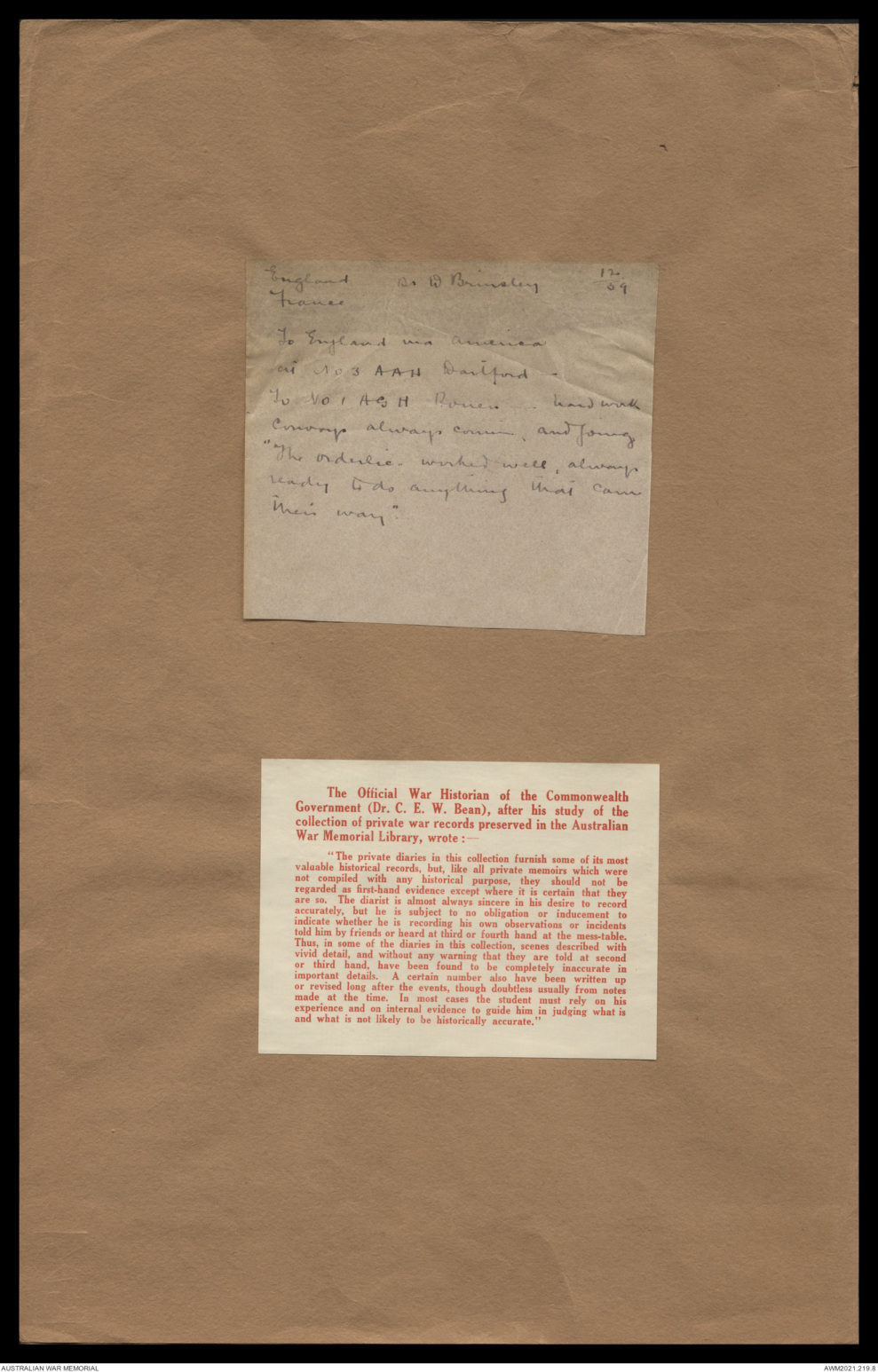
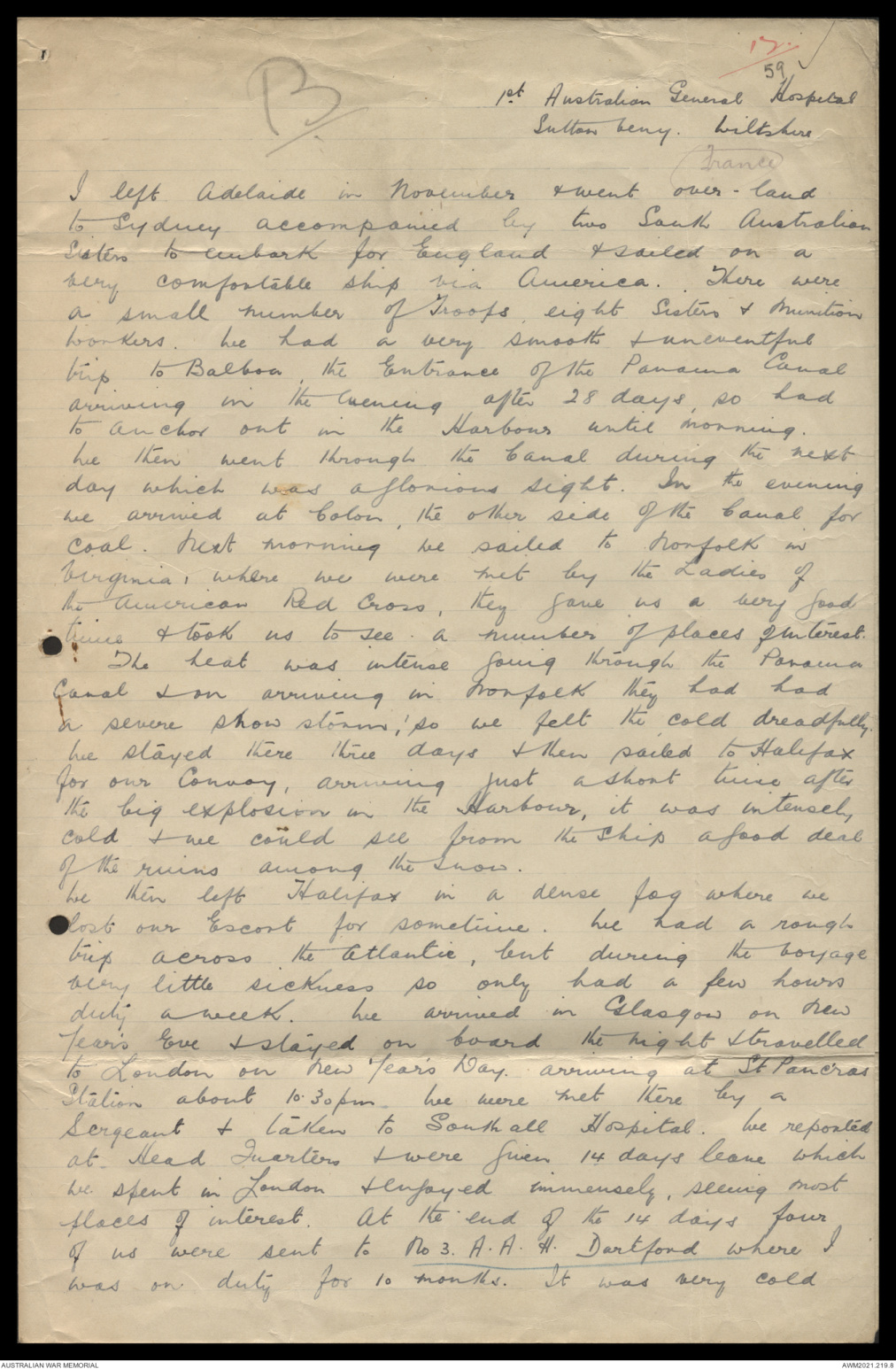
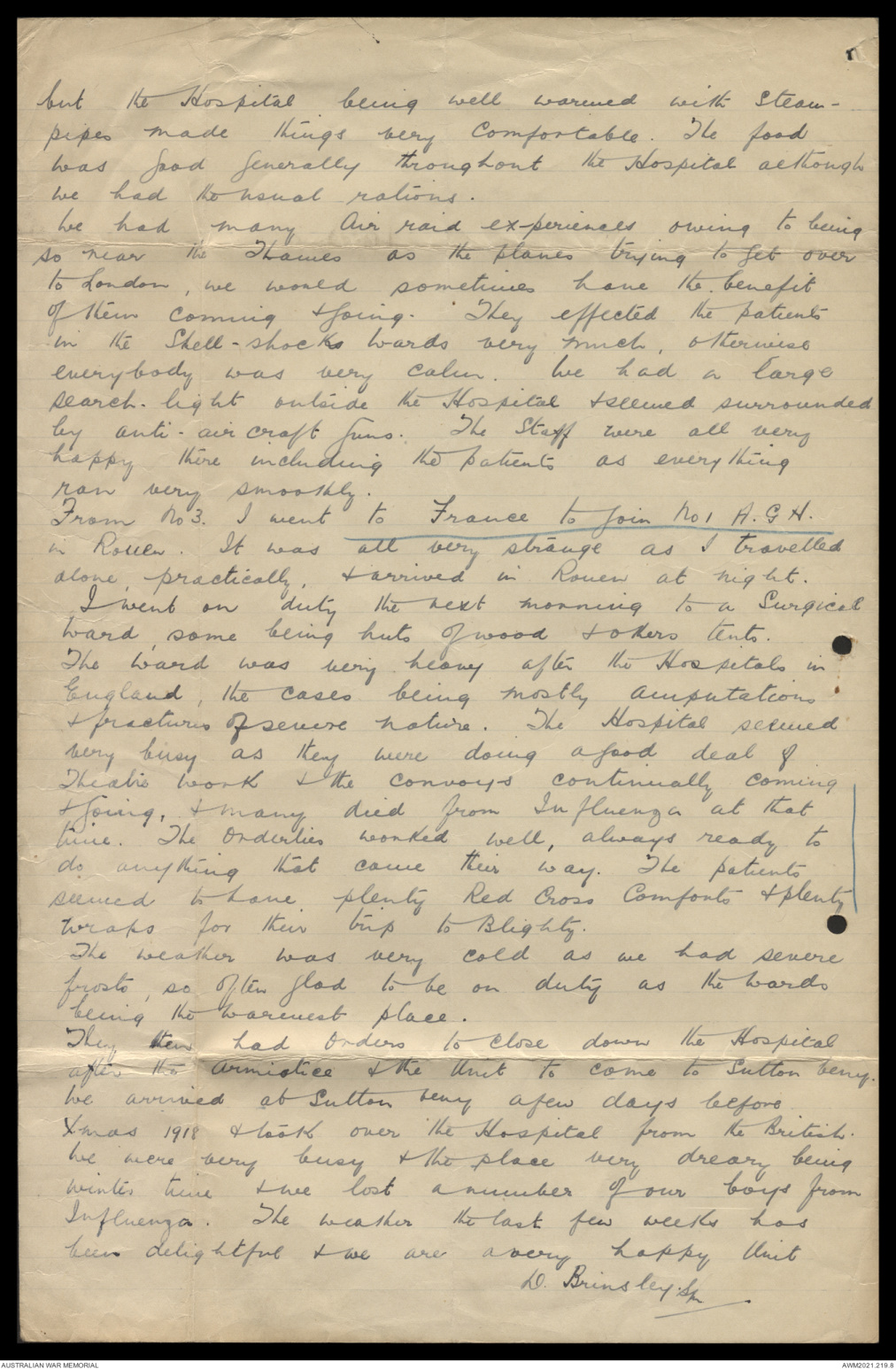
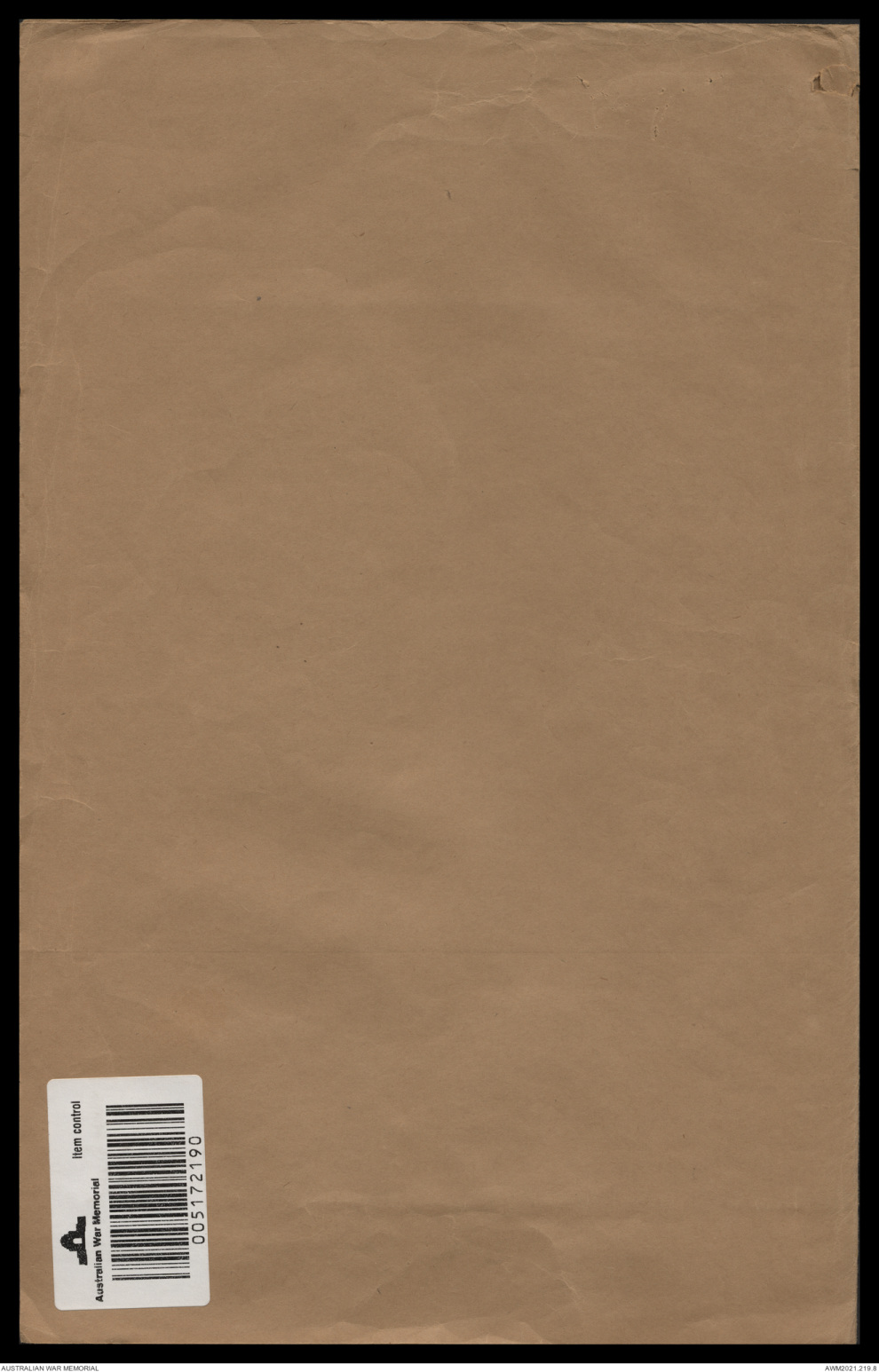
5/59
AWM41
AUSTRALIAN ARCHIVE
ACCESS STATUS
OPEN
STAFF NURSE D. BRINSLEY.
A.W.J.
LIBRARY
Class No 373.2
[945]
England Sr D Brinsley 12/59
France
To England via America
at No 3 AAH Dartford -
To No 1 AGH Rouen - hard work
Convoys always coming and going
"The orderlies worked well, always
ready to do anything that came
their way"
The Offical War Historian of the Commonwealth
Government (Dr. C. E. W. Bean), after his study of the
collection of private war records preserved in the Australian
War Memorial Library, wrote:-
"The private diaries in this collection furnish some of its most
valuable historical records, but, like all private memoirs which were
not compiled with any historical purpose, they should not be
regarded as first-hand evidence except where it is certain that they
are so. The diarist is almost always sincere in his desire to record
accurately, but he is subject to no obligation or inducement to
indicate whether he is recording his own observations or incidents
told him by friends or heard at third or fourth hand at the mess-table.
Thus, in some of the diaries in this collection, scenes described with
vivid detail, and without any warning that they are told at second
or third hand, have been found to be completely inaccurate in
important details. A certain number also have been written up
or revised long after the events, though doubtless usually from notes
made at the time. In most cases the student must rely on his
experience and on internal evidence to guide him in judging what is
and what is not likely to be historically accurate."
1st Australian General Hospital
Sutton Veny. Wiltshire
France
I left Adelaide in November & went over- land
to Sydney accompanied by two South Australian
Sisters to embark for England & sailed on a
very comfortable ship via America. There were
a small number of Troops, eight Sisters & Munition
workers. We had a very smooth & uneventful
trip to Balboa, the Entrance of the Panama Canal
arriving in the evening after 28 days, so had
to Anchor out in the Harbour until morning.
We then went through the Canal during the next
day which was a glorious sight. In the evening
we arrived at Colon, the other side of the Canal for
coal. Next morning we sailed to Norfolk in
Virginia, where we were met by the Ladies of
the American Red Cross, they gave us a very good
time & took us to see a number of places of interest.
The heat was intense going through the Panama
Canal & on arriving in Norfolk they had had
a severe snow storm, so we felt the cold dreadfully.
We stayed there three days & then sailed to Halifax
for our Convoy, arriving just a short time after
the big explosion in the Harbour, it was intensely
cold & we could see from the ship a good deal
of the ruins among the snow.
We then left Halifax in a dense fog where we
lost our Escort for sometime. We had a rough
trip across the Atlantic, but during the voyage
very little sickness so only had a few hours
duty a week. We arrived in Glasgow on New
Year's Eve & stayed on board the night & travelled
to London on New Year's Day arriving at St Pancras
station about 10.30pm. We were met there by a
Sergeant & taken to Southall Hospital. We reported
at Head Quarters & were given 14 days leave which
we spent in London & enjoyed immensely, seeing most
places of interest. At the end of the 14 days four
of us were sent to No 3. A.A.H. Dartford where I
was on duty for 10 months. It was very cold
but the Hospital being well warmed with steam-
pipes made things very comfortable. The food
was good generally throughout the Hospital although
we had the usual rations.
We had many Air raid experiences owing to being
so near the Thames as the planes trying to get over
to London, we would sometimes have the benefit
of them coming & going. They effected the patients
in the Shell-shock wards very much, otherwise
everybody was very calm. We had a large
search light outside the Hospital & seemed surrounded
by anti - air craft guns. The Staff were all very
happy there including the patients as everything
ran very smoothly.
From No 3. I went to France to join No 1 A.G.H.
in Rouen. It was all very strange as I travelled
alone, practically, & arrived in Rouen at night.
I went on duty the next morning to a Surgical
ward, some being huts of wood & others tents.
The ward was very heavy after the Hospitals in
England, the cases being mostly amputations
& fractures of severe nature. The Hospital seemed
very busy as they were doing a good deal of
Theatre work & the convoys continually coming
& going, & many died from Influenza at that
time. The Orderlies worked well, always ready to
do anything that came their way. The patients
seemed to have plenty Red Cross Comforts & plenty
wraps for their trip to Blighty.
The weather was very cold as we had severe
frosts, so often glad to be on duty as the wards
being the warmest place.
They then had orders to close down the Hospital
after the Armistice & the Unit to come to Sutton Veny.
We arrived at Sutton Veny a few days before
Xmas 1918 & took over the Hospital from the British.
We were very busy & the place very dreary being
winter time & we lost a number of our boys from
Influenza. The weather the last few weeks has
been delightful & we are a very happy Unit
D Brinsley Sr
 Jacqueline Kennedy
Jacqueline KennedyThis transcription item is now locked to you for editing. To release the lock either Save your changes or Cancel.
This lock will be automatically released after 60 minutes of inactivity.